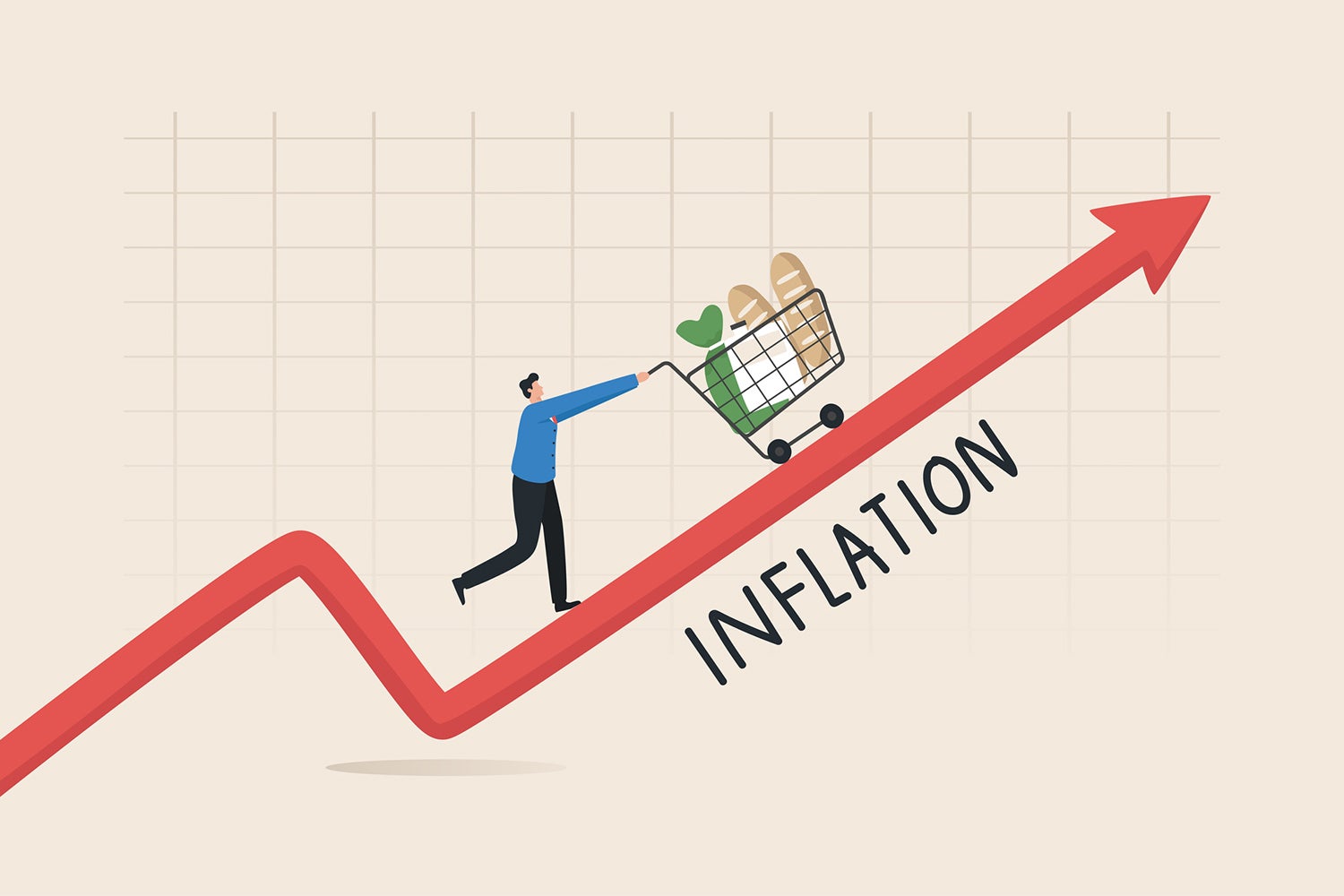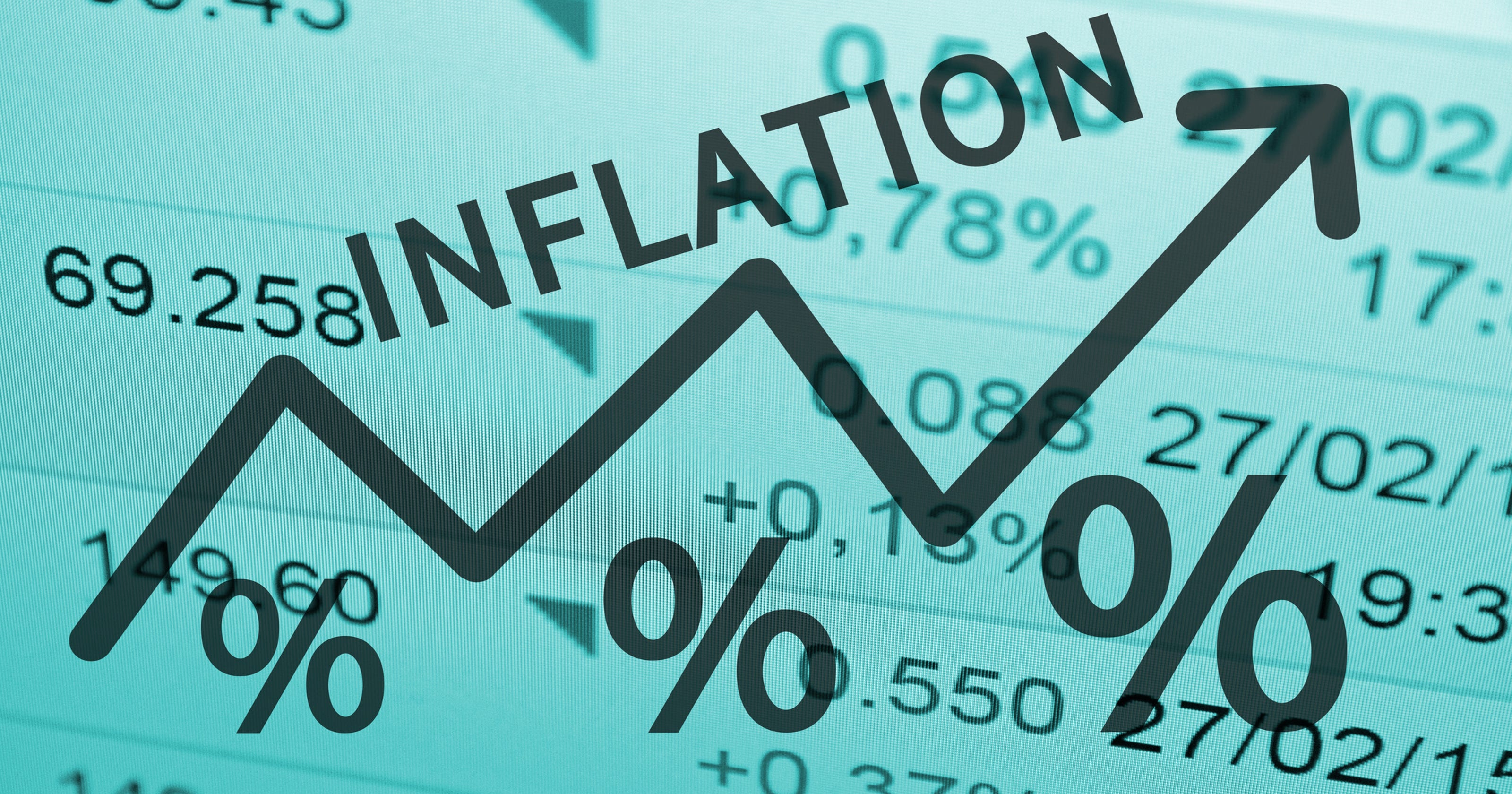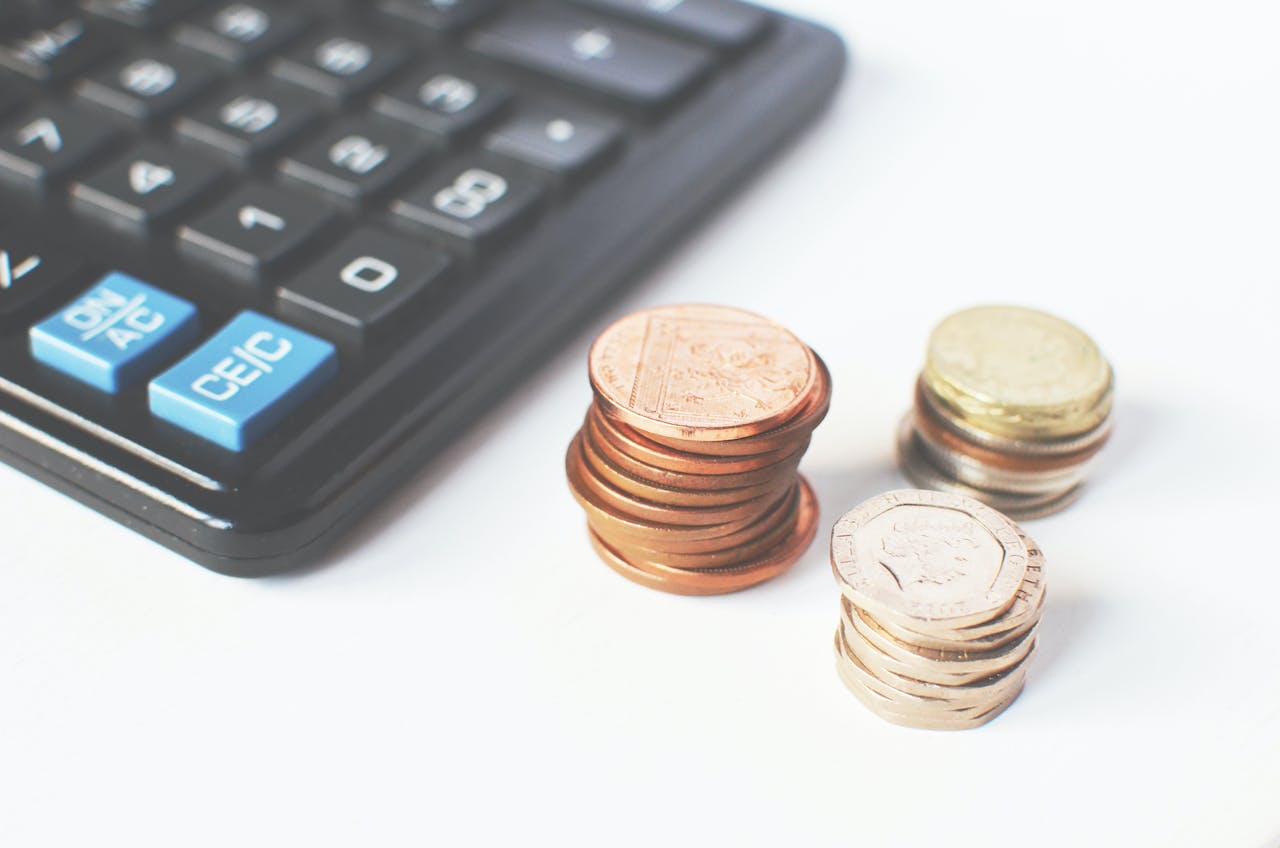
In 10 years, a dollar will buy a different amount of things than it does now. This is because of rising prices. Inflation is the average rise in prices of a basket of goods and services in a country. It shows how much prices have gone up over a certain amount of time.
A certain amount of money will be worth less than it did before because of inflation. So, to protect yourself from inflation, it's essential to find suitable investments and tactics. The amount of inflation in a country changes based on what's going on in the world.
Two things that lead to inflation are pay going up quickly and the prices of raw materials going up quickly, like oil. In a market economy, inflation is a normal thing that happens. There are many ways to protect yourself from inflation. An intelligent investor can prepare for it by buying asset classes that do better than the market when inflation is high.
If you keep an eye on inflation-hedged asset classes and then act when you see inflation start to show up in a natural, organic growth economy, your portfolio will do very well when inflation hits. Here are some of the beststrategies to safeguard investments from Inflation.
A hedge against inflation is an investment that protects the investor against the loss of buying power caused by rising prices of goods and services. The best purchases to protect yourself from inflation are those that either keep their value during inflation or go up in value over a certain amount of time.
As a general rule, investments like gold and real estate are good ways to protect against inflation. Some buyers still like to put their money in stocks, though, because they think they can beat inflation in the long run. Here are the best strategies to safeguard and multiply your wealth!
Diversify Your Investment Portfolio
Different types of investments are one of the best ways to keep your money safe from inflation. If you buy a variety of things, like stocks, bonds, real estate, and commodities, you can lower the chance that inflation will affect all of your holdings at the same time.
Diversification lets you invest in a number of different things, which can help you make gains that are higher than inflation.
Don't Let Your Cash Sit Idle
It would be best if you had more cash on hand to deal with inflation that is going up. There needs to be more money in savings accounts.
Instead, it would help if you bought into the market on a daily basis at a dollar cost average so that your money can grow and you don't have to buy at a low or high price. Also, selling out at low prices is a bad idea because you lock in losses and need help getting your money back.
Invest In Real Assets
In the past, real investments like commodities and real estate have been used to protect against inflation. Tangible assets usually keep their value or even go up in value during times of inflation, unlike cash or fixed-income investments that can lose value when prices go up.
One idea for your investment portfolio is to put some money into real estate, precious metals, or commodities like oil or agricultural goods.
Embrace Stocks With Pricing Power
Companies that have the power to set prices can change the prices of their goods in response to rising prices. Putting your money into stocks of these kinds of companies can help keep it safe from inflation.
Look for companies that sell goods or services that are in high demand and have little competition. This way, the company can raise prices without getting many complaints from customers. Most of the time, these businesses are in industries like healthcare, energy, or consumer goods.
Bonds - Choose Wisely
Most people think of bonds as a safe investment, but their value can go down during times of inflation. When choosing bonds, Treasury Inflation-Protected Securities (TIPS) and other securities that protect against inflation should be given the most attention.
Investors can protect themselves against rising prices with these bonds because the capital value changes with inflation. Consider looking into shorter-term bonds that mature faster and let you reinvest at possibly higher interest rates.
Increase Earnings Through Side Businesses
Having more than one source of income is another way to fight inflation. To add to your primary source of income, start a side businessor look for freelance work.
You can make up for the effect of rising prices and make sure your wealth keeps up with inflation by making more money. Pick businesses that fit your skills and interests and will help you grow in the long run.
Invest In Education And Skills
To protect your wealth from inflation, you need to do more than spend. It is possible to make more money and be less affected by inflation by investing in education and skill development.
You can adapt to changing market conditions and stay helpful in a changing economy by constantly learning new things and getting skills that people want. To stay ahead of the curve, you should take classes, go to events, or get certified.
Reveal And Refashion Your Savings Strategy
People usually put their money in savings accounts, but there might be better ways to fight inflation. Look for options with higher yields, such as SIPs, ELSS, high-interest fixed deposits, or money market funds that give you better profits.
Harness The Power Of Knowledge And Education
Forge ahead with the power of knowledge and schooling to face the problems that inflation brings. Keep up with changes in the economy, money-saving tips, and business chances.
Learn more about the complicated nature of inflation and how it might affect your funds. You can protect and grow your wealth by making intelligent choices based on the information you have access to.
Buy Bank Loans
Even when prices are going up, some businesses can do very well. For instance, banks make more money when interest rates go up because the cost of loans goes up. If you want to make more money and protect yourself from price drops if rates start to rise, buying senior-protected bank loans is a good idea.
But keep in mind that it could take a long time for loans to become worth more after your rates go up. This kind of fund is shown by the Lord Abbett Floating Rate Fund (LFRAX).
Reduce Your Tax Drag
Taxes are a big reason why portfolios could do better. You should pay as little tax as possible. You can lower your overall tax bill by using market volatility to your benefit to harvest tax losses and putting tax-inefficient investments in the proper tax-deferred or tax-exempt accounts. This can help lessen the effects of inflation.
Explore Alternative Investments
If you already have money in a high-yield savings account, stocks, and a diverse portfolio, consider looking into other investments to protect yourself from inflation. It's a good idea to look over your finances and see if there are ways you can protect your money as inflation rates rise.
You can fight rising prices by putting your money into stocks, bonds, and other common types of investments. There are a number of different alternative businesses you can look into. No matter what you decide, you should diversify your stock so that you can save money if one investment doesn't do well.
Don't Assume Current Conditions Will Last Forever
When their goals are long-term, some clients make decisions for the short term based on how they feel. When we read about inflation rates in the news, we feel scared and think they will stay this high forever.
We know from history that's not true. Talk to your financial expert about making different "stress tests" to see how your plan and portfolio change when the market is down or up.
How Do We Protect Our Hard-Earned Money?
As soon as the economy changes, people avoid options that are likely to go down in value and seek out ones that will. Most people figure out how stable an object is by looking at how well it has done in the past and whether its value has gone up over time.
Keeping up with economic trends, government policies, and the state of the world economy is the best way to find these kinds of chances. Knowing what causes inflation and currency loss gives you the power to make intelligent financial choices. To learn more about money, you can go to workshops, read financial news, and talk to financial experts.
What Can Be The Best Investment Options?
Diversifying your investments is an excellent way to keep your money safe. You take on more risk when you only invest in one type of stock. Diversification helps spread risk and increases the chance of making money, even when the economy changes.
There is a lot of uncertainty in the economy right now, so the best thing for investors to do is buy high-quality fixed-income assets like government treasury bonds. FDRs from NBFIs and high-performing banks are also going up, which means they can also be a good investment. However, investors need to be sure that the company where they put their money is well-run and will be able to return it.
Asset Classes For Protection Against Inflation
Gold
Gold is often thought of as a way to protect against inflation. This is why a lot of people have looked to gold as an "alternative currency," especially in places where the local currency is losing value. When their currency fails, these places often use gold or other strong currencies. In general, gold's value stays the same because it is a real thing.
Commodities
As well as foreign currencies, emissions, and some financial instruments, commodities cover a wide range of things, such as grain, valuable metals, electricity, oil, beef, orange juice, and natural gas.
There is a unique link between commodities and inflation; commodities can show when inflation is going to happen. The prices of the things that are made from a commodity go up when the price of that commodity goes up.
A 60/40 Stock/Bond Portfolio
People think of a 60/40 stock/bond portfolio as a safe and standard mix of stocks and bonds in a conservative portfolio. You could invest in the Dimensional DFA Global Allocation 60/40 Portfolio (I) (DGSIX) if you want to avoid putting together your portfolio and avoid paying an investment planner to do it for you.
Real Estate Investment Trusts (REITs)
Real estate investment trusts, or REITs, are businesses that own and run properties that bring in money. When inflation goes up, property costs and rental income tend to go up, too. A REIT is a group of properties that give owners money every so often. The Vanguard Real Estate ETF (VNQ) is a good choice if you want to get broad exposure to real estate with low costs.
The S&P 500
With stocks, you can make the most money in the long run. In general, businesses that only need a little money to start up do better during inflation. On the other hand, companies that deal with natural resources do worse during inflation.
At the moment, the S&P 500 is mainly made up of internet companies and communication services. (They own 35% of the Index.) Technology and communication services are both businesses that don't need a lot of cash, so they should be suitable for inflation.
Investment Risk Management Tips During An Inflation
Diversify Investment Portfolio
Investing in different types of assets that are less linked to each other can help lower the risk of losing money in one type of asset. This can help keep your savings safe from inflation and other risks in the market.
Put some of your money into inflation-linked gilts, which are also known as inflation-indexed bonds. These are securities whose worth changes based on inflation rates. They might be an excellent way to protect yourself from inflation.
Regularly Monitor Critical Economic Indicators
As you keep an eye on specific economic measures, like interest rates, GDP, and unemployment rates, you can learn a lot about the health of the economy and the risks that might be involved in your investments.
Consumer Price Inflation, or CPI, is one sign that you should pay close attention to. This inflation measure tracks items and service prices. You can understand how prices are changing in the business and make intelligent choices about your investments by keeping an eye on the CPI.
Practice Hedging
Successful investors use hedging to lower or cancel out the risk of losing money when the prices of their investments go down. It means putting money into an asset in your portfolio that is negatively linked with another asset in your portfolio. In this way, you are basically lowering your risk of a particular event, like inflation.
For instance, if you own stocks and are worried that inflation will make them worth less, you could invest in inflation-protected bonds, which usually do well when inflation is high. If the stocks in your collection go down in value, this would help make up for it.
Consider Investing In Early-Stage Startups
If you invest in EIS and SEIS-certified companies, you might get tax breaks and even make money. These programs can help owners save money on taxes and encourage them to put money into small businesses and new businesses. Putting money into startups can also give you a chance to make more money than with standard investments.
In addition to the possible returns, investment in startups that are EIS or SEIS-certified can protect you from inflation. Inflation has less of an effect on startups because they have more room to grow, which can make up for the extra costs that come with inflation. Also, investing in startups is usually a long-term move, which can protect you from inflation-related short-term changes in the market.
Frequently Asked Questions
What Are The Possible Ways To Protect These Investments During Inflation?
Diversify assets, invest in tangible assets like real estate, and consider inflation-protected securities.
How Can You Protect Your Money From Inflation By Investing?
Invest in inflation-hedged assets such as stocks, commodities, and Treasury Inflation-Protected Securities (TIPS).
What Is The Best Way To Protect Against Inflation?
Diversify your portfolio with a mix of inflation-resistant assets, focusing on stocks, real estate, and inflation-indexed bonds.
How Do Investments Keep Up With Inflation?
Investments, especially those tied to tangible assets, can appreciate over time, providing a hedge against the eroding effects of inflation.
Conclusion
I hope that you have understood the strategies to safeguard investments from inflation. The worth of the money that an individual possesses decreases as a result of inflation, which wears away at their ability to make purchases.
The erosion of your money can be prevented by the use of many methods, some of which are more effective than others, that protect against inflation. If you want to keep the value of your wealth, one bright investment opportunity is to put your money into funds that offer protection against inflation. Examples of such products include exchange-traded funds (ETFs).





